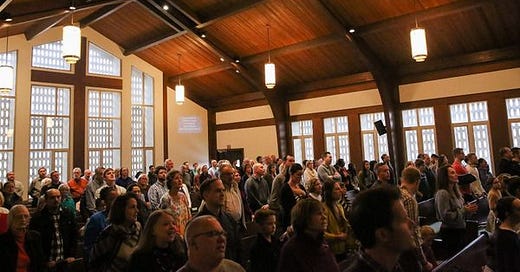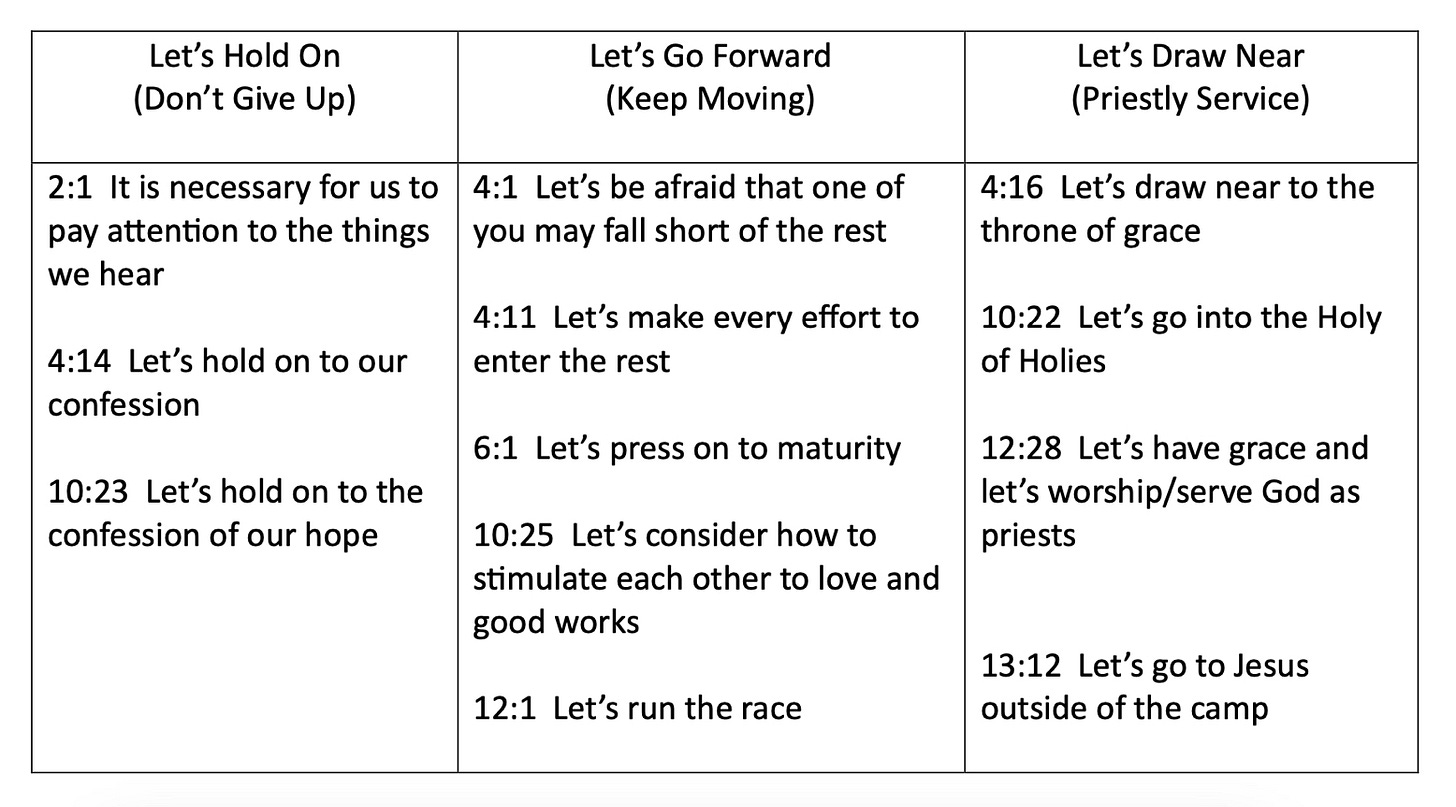With just a cursory reading of Hebrews, we discover that this writing has much to say about Christian faith and hope. Both faith and hope are rooted in Jesus Christ and so both are interconnected. As Hebrews 11:1 says, “Now faith is the assurance of things hoped for, the conviction of things not seen.”1
Christian faith and hope are so interrelated that it’s hard to speak of one without the other. Also, as one goes, so goes the other. Jürgen Moltmann describes the relationship between faith and hope, saying:
Without faith’s knowledge of Christ, hope becomes a utopia and remains hanging in the air. But without hope, faith falls to pieces, becomes a fainthearted and ultimately a dead faith. It is through faith that man finds the path of true life, but it is only hope that keeps him on that path. Thus it is that faith in Christ gives hope its assurance. Thus it is that hope gives faith in Christ its breadth and leads it to life.2
Faith is predicated on what we believe whereas hope lives with an expectation of what we believe will happen. Hope emerges out of our faith in Jesus Christ but hope also sustains our faith in Jesus Christ because we know that what we believe isn’t meaningless.
As important as faith and hope are to the Christian life, an important question then is how we keep such faith and hope. Such a question is not esoteric musing either, as I was asked by a fairly new follower of Jesus this very question. And since it is always possible to lose faith and hope, we should be interested in how we can keep our faith and hope intact.
We are more likely to keep our focus on the finish line, remember the promises God has fulfilled in Christ, and remain anchored to Christ when gathering together.
For the last few weeks, I have been preaching a series of sermons from Hebrews to the Newark Church that address the question of keeping faith and hope. I have offered three suggestions for keeping our faith and hope. First, we are likely to keep our faith and hope when we keep our focus on the finish line. Hebrews uses the metaphor of running a race and anyone who runs a race knows that races are finished by staying focused on crossing the finish line. Second, we are likely to keep our faith and hope by remembering the promises that God has made in Jesus Christ. Hebrews has a lot to say about the redemptive work God has accomplished in Christ and remembering those promises allows us to live in light of the salvation we already have received. Lastly, we are likely to keep our faith and hope by remaining anchored to Christ. Just as an anchor keeps a boat from floating adrift in the sea and keeps a house steadfastly secured to its foundation, so we avoid the drift and unsteadiness when anchored to Christ.
However, there’s another aspect to keeping our faith and hope that might surprise Christians today. The surprise I’m talking about is the church, the community of believers gathered together.
Throughout Hebrews, the writing uses the language of “us”. In a recent seminar on Hebrews, John Mark Hicks provided the following chart that shows the first-person plural voice
This language is the voice of a preacher saying we rather than me, or to be more precise, a language that says “let us” rather than let you or let I. Eleven times the preacher speaks of “us” because having the support of each other matters3 amidst the challenges we face in life. The importance of us is also why we read in Hebrews 10:25, “not neglecting to meet together, as is the habit of some, but encouraging one another, and all the more as you see the Day approaching.”
It’s unfortunate that in past times Hebrews 10:25 was often misused in a legalistic manner. Weaponizing this passage to guilt-trip people into church attendance or to fear God’s judgment for missing a church service is spiritual abuse—full stop. Anyone who knows me then knows that I want nothing to do with such legalism. But as a pastor, I also am concerned that in trying to avoid such legalism, we can diminish the importance of gathering together as Christians. That would be a mistake. We are more likely to keep our focus on the finish line, remember the promises God has fulfilled in Christ, and remain anchored to Christ when we gather together.
It might be helpful to know Hebrews 10:25 is not just talking about what we think of as Sunday morning church. The old King James Version used the phrase “forsaking the assembly” which in my experience was assumed to mean Sunday morning church. The text never uses the word assembly but instead says “not neglecting to gather together with yourselves” (my translation). Traditional Sunday church services are one way of gathering together but not the only way and some might even say that Sunday morning services are not the most important way. Regardless of what is most important, there are other ways of gathering together. We can gather together in life groups, by meeting up for coffee or even having dinner together. These days the luxury of smartphones allows us to remain connected by checking in with each other through a quick phone call or even a text. However, we would be wise to never allow texting and communication through social media to replace gathering together in face-to-face settings.
The reason why we must pursue a life of faith and hope together is that we are more vulnerable when we’re not together.4 The point of gathering together is about encouraging each other so that when we get tired in this race of life that we’re running, we can encourage each other’s faith and hope in Christ. The answer to the question of how we keep our faith and hope is by staying connected to each other, and by coming together as brothers and sisters in Christ. We are more likely to keep our faith together because the work of the Holy Spirit in the life of every single believer is done as a “we” and “us” together.
Any notion that we can live as Christians apart from participation in a local body of believers, known as a church, would be strange to the preacher who gave us Hebrews. I know there are local churches that are so unhealthy that faith and hope are hindered rather than nurtured. However, gathering together as Christians still matters. So if we want to keep our faith and hope, we would do well to find a local church we can be a part of and participate in life together with that church.
Unless otherwise noted, all scripture quotations are from the New Revised Standard Version, Updated Edition Bible, copyright © 1989, 2021 by the Division of Christian Education of the National Council of the Churches of Christ in the U.S.A., and are used by permission. All rights reserved.
Jürgen Moltmann, Theology of Hope: On the Ground and the Implications of a Christian Eschatology, trans. James W. Leitch (New York: Harper and Row Publishers, 1967), 20.
David A. deSilva, Hebrews: Grace and Gratitude (Nashville: Abingdon Press, 2020), 95.
Craig R. Koester, Hebrews: A New Translation with Introduction and Commentary, The Anchor Bible (New York: Doubleday, 2001), 445, notes that the word ἐγκαταλείπω (abandon, neglect) implies “leaving something vulnerable to destructive forces such as poverty (cf. 13:5), death (Matt 27:46; Mark 15:34; Acts 2:27), or other difficulties (2 Cor 4:9; 2 Tim 4:10, 16).”




